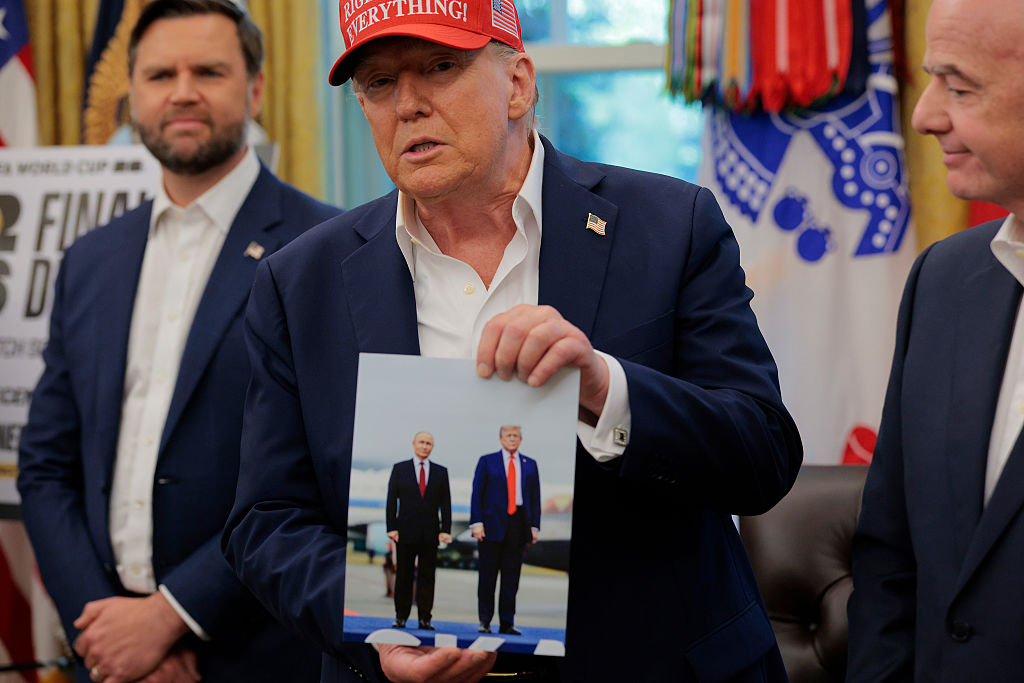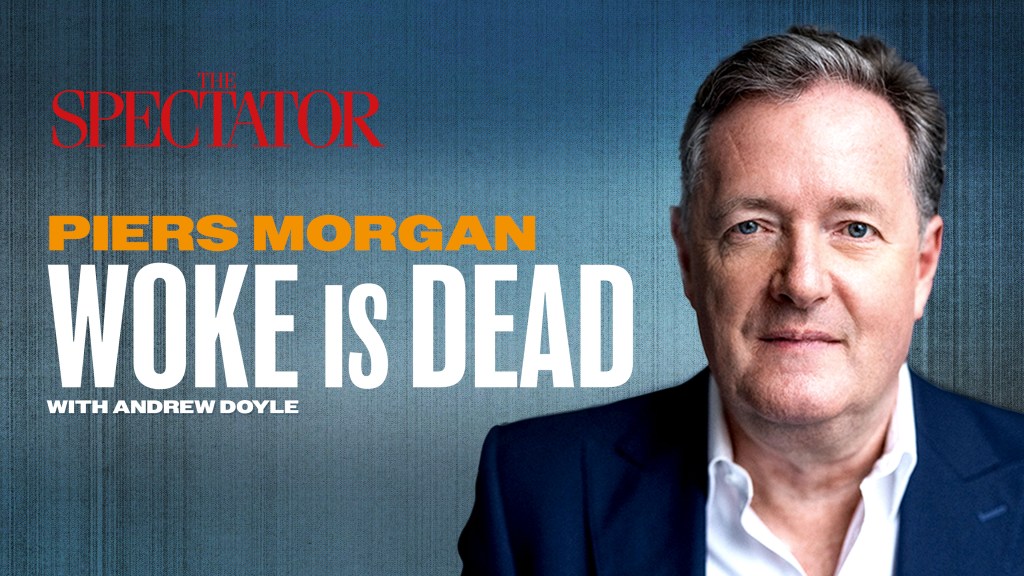Is Donald Trump’s peace process in Ukraine moving forward – or it is merely going around in circles in a series of gut-wrenching loop-the-loops? Less than a fortnight ago Trump raised Ukrainian hopes by dangling the possibility of sending Tomahawk cruise missiles, describing the Kremlin as a ‘Paper Tiger’ and warning that the Russian economy was on the verge of collapse. But when Ukraine’s president Volodimir Zelensky arrived late last week in Washington for face to-face talks at the White House instead of Tomahawks he received a lecture on how he had to accede to many of Putin’s demands or face ‘annihilation’.
Land – or ‘property’ as Trump puts it – is not what Putin really wants at all
What changed? Just hours before his meeting with Zelensky, Trump spoke for over two hours to Putin. Though there’s been no official readout of that confidential conversation, it’s clear that Trump was swayed by several key Putin talking points – so much so that they quickly transformed into US demands. One is the claim that the conflict was a ‘special operation, not even a war’ and that Putin could escalate a lot further. Another, repeated by Trump’s Russia envoy Steve Witkoff, is that Putin’s demand for the remainder of Donbas is reasonable because the region contains Russian speakers. The third is the suggestion that Putin may be willing to swap land in exchange for the part of Donbas that he has not yet occupied.
Putin made very similar demands during a recent summit with Trump in Anchorage, Alaska – a summit which we now know ended in something close to acrimony and was cut short by Trump, frustrated by Putin’s intransigence. So what, if anything, is likely to be different when Putin and Trump meet again in Budapest in six weeks’ time?
One key puzzle is what, precisely, is behind talk of land swaps being the key to peace. Sources cited by the Washington Post suggested that Putin was ready to trade parts of Zaporizhzhia and Kherson if the Ukrainians withdrew from Donetsk. That sounded like a breakthrough – until Zelensky clarified what Putin meant when he spoke of ‘territorial concessions’. Putin meant giving up claims on the as-yet unoccupied parts of Zaporizhzhia and Kherson in exchange for the Ukrainian army withdrawing from all of Donetsk. And if Putin is ready to give away any land, it’s tiny slivers of Kharkiv, Sumy and Dnipropetrovsk regions occupied by Russian troops precisely as potential giveaways in a future deal.
On Sunday Trump came out with a clarification of his own. He and Putin did not discuss land swaps in the Donbas, insisted Trump, who also said that his preferred outcome would be for both sides to ‘stop at the battle lines.’ More, he added that ‘78 per cent of the land [of Donetsk] is already taken by Russia. You leave it the way it is right now.’ Trump’s frustrated refusal to engage in horse-trading over the details of a line-of-control deal chimes with reporting from the Financial Times from his meeting with Zelensky. During those talks Trump reportedly threw Ukraine’s maps of the battlefield to one side saying he was ‘sick’ of seeing the map of the frontline of Ukraine again and again.
But while the back-and forth over land swaps may be tiresomely familiar from previous rounds of inconclusive talks, a new factor is that two deeply concerning elements of US thinking have now become orthodoxy. One is that Ukraine is losing the war and must capitulate or be destroyed. Back in January when Trump had his first, aggressively hostile meeting with Zelensky he told the Ukrainian president that ‘you have no cards.’ Now, Trump reportedly warned Zelensky that ‘if [Putin] wants it, he will destroy you.’
The other is the idea that Putin has a legitimate point that the Russian-speaking parts of Ukraine properly belong to Russia. Trump’s envoy Witkoff – who has had at least four meetings with Putin – reportedly suggested that Donetsk, as a Russian-speaking region, could be easily surrendered to Moscow as the price of peace. That prompted a vehement response from Zelensky who countered that the referendums conducted by Moscow in the occupied territories were faked.
Is there a realistic chance that peace could emerge from this tangle of misunderstandings? The picture that emerges is, on balance, that Trump and Putin fundamentally don’t understand each other. Trump believes Putin wants land. Indeed in television interviews since his meeting with Zelensky, Trump has said Putin is ‘going to take something. I mean, they fought and he has a lot of property.’
But land – or ‘property’ as Trump puts it – is not what Putin really wants at all. Indeed between February 2014 and late 2020 the Kremlin vehemently insisted that the rebel republics of Donbas were part of Ukraine. Rather, the plan was to use the pro-Russian enclaves as a Trojan horse inside Ukraine to create a new federal constitution and push back on Nato and EU membership. It was only when the Kremlin realised that the Donbas would never be reincorprated into Ukraine that its strategy changed.
But Putin’s overarching goal has not changed – it is to neutralise the strategic threat to Russia’s national security that is represented by a Western-allied, heavily armed Ukraine. That’s why Putin keeps demanding what he knows Zelensky cannot give, which is the surrender of the so-called ‘fortress belt’ of Donbas cities. And Zelensky’s inevitable refusal will allow the Kremlin to blame the Ukrainians for the failure of peace talks. That, in turn, allows Putin to continue to push for what he really wants which is a change of regime in Kyiv, as well as guarantees of neutral status and repeal of anti-Russian language laws. He also demands restrictions on Ukraine’s armed forces, which is highly unlikely – though there may be some kind of demilitarised zone along the line of control.
The problem for Zelensky is that Trump may be right that Ukraine faces a choice of either giving up Donetsk or losing it slowly and bloodily in battle. ‘My view is that they would not win’ against Russia, Britain’s most senior general Field Marshal Lord Richards told the Independent over the weekend. Asked if they could win with more weapons and resources, Richards replied that Ukraine ‘hasn’t got the manpower’ and has no chance of victory ‘unless we were to go in with them – which we won’t do because Ukraine is not an existential issue for us. It clearly is for the Russians, by the way.’
With Zelensky adamant that he will not voluntarily concede any more territory and Putin apparently more determined than ever to push on until his war aims are fulfilled, the chances of peace breaking out at the upcoming Budapest summit are slim.








Comments